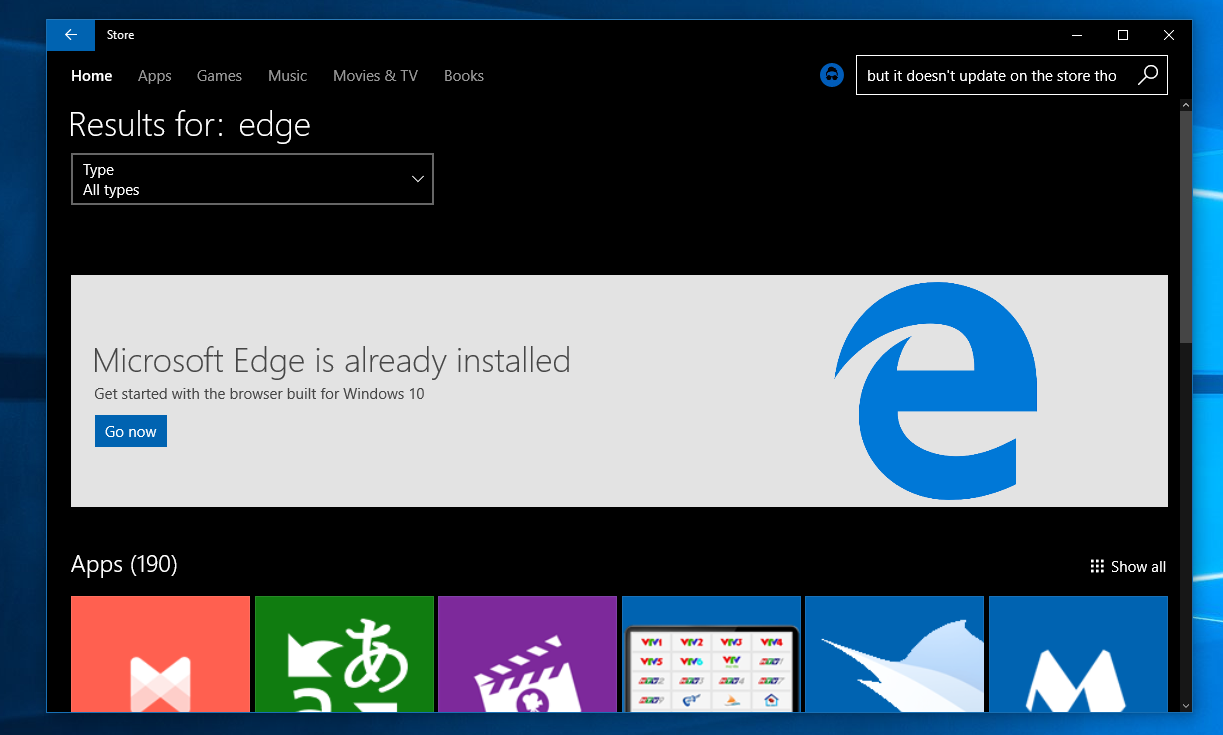The Progressive Web Apps bus has left the station, it did so a long time ago, and Microsoft was among the few who were left behind while still contemplating whether or not to get on it.
On the next release of Windows 10, Microsoft will finally bring the Progressive Web Apps (PWA) to the Microsoft Store. Yesterday Microsoft said in a blog post that the team behinds its Edge browser has placed a short-term plan to integrated PWA within Windows.
“We’ve announced before in several venues that we’re all-in on PWAs. In fact, as hinted above, we want to take PWAs on Windows to the next level, by making them first-class app citizens in Windows.
On other platforms, PWAs primarily originate from inside the browser and can escape the browser in response to various prompts or menu options. We’re taking things one step further on Windows! Because a PWA can be a first-class citizen in the [Microsoft] Store, a user will be able to engage fully with an installed PWA; from discovery to installation, to execution – without ever opening the browser.” – said the Microsoft team behind Edge browser.
Already, Microsoft is curating a number of apps automatically as they prepare to launch PWAs on its store. Although Microsoft is yet to make know which apps (powered by PWA technology) will be availed at the Store. However, experts seem to believe those apps will be launched together with the Windows 10’s Spring 2018 (RS4) update.
Some developers have been rooting for PWAs as an alternative to UWPs. To the contrary, Microsoft views that as a false dichotomy. The company says PWAs are an enhancement of pre-existing app strategy on Windows and are meant to complement, not replace UWPs.
“For developers who are building a fully-tailored UWP experience, building from the ground up with native technologies may make the most sense. For developers who want to tailor an existing web codebase to Windows 10, or provide a first-class cross-platform experience with native capabilities and enhancements, PWA provides an on-ramp to the Universal Windows Platform that doesn’t require demoting or forking existing web resources,” said the Edge team explained further.
Just for kicks, here is @davatron5000‘s @godaytrip as a #PWA on a preview build of Windows 10! 🚀(inspired by: https://t.co/Flm63mmu6K) pic.twitter.com/t2Kr5MlTOX
— Kirupa 🍊 (@kirupa) February 1, 2018
PWA works across different browser platforms, from Chrome, Firefox, (and soon) Edge; and any other browser that chooses to support the technology.



